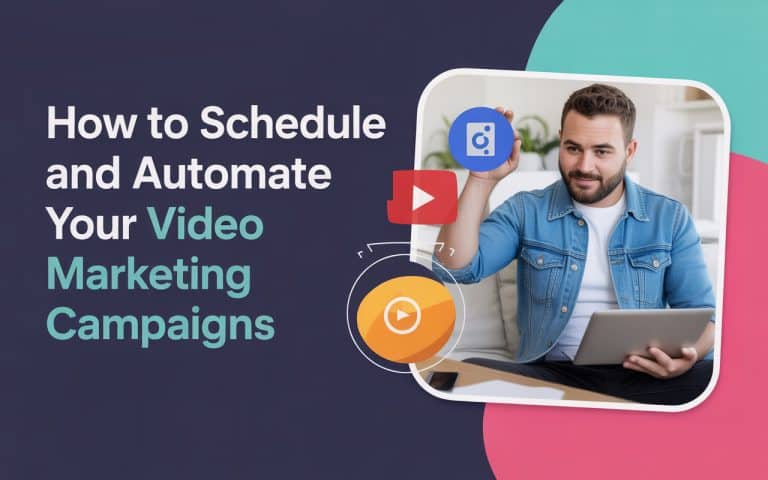
How to Create a Customer Loyalty Program in 4 Easy Steps (10+ Examples)
Are you looking for a way to increase sales from your existing customers? Who isn’t?
Customer retention can be a time-consuming, expensive process, so any strategy that can help you drive consistent sales is welcome.
In this post, I’m going to share how a customer loyalty program can help you accomplish this. I’m also going to show you exactly how to build a program by following 4 easy steps.
But first, I want to start by explaining a bit about customer loyalty programs.
What is a customer loyalty program?
Not entirely sure what a customer loyalty program is?
No problem – here’s the basic gist: It’s simply a program you institute within your business that rewards your customers for being loyal to your brand.
For your customers, the benefit is they can save money or receive extra products simply by buying more stuff from you.
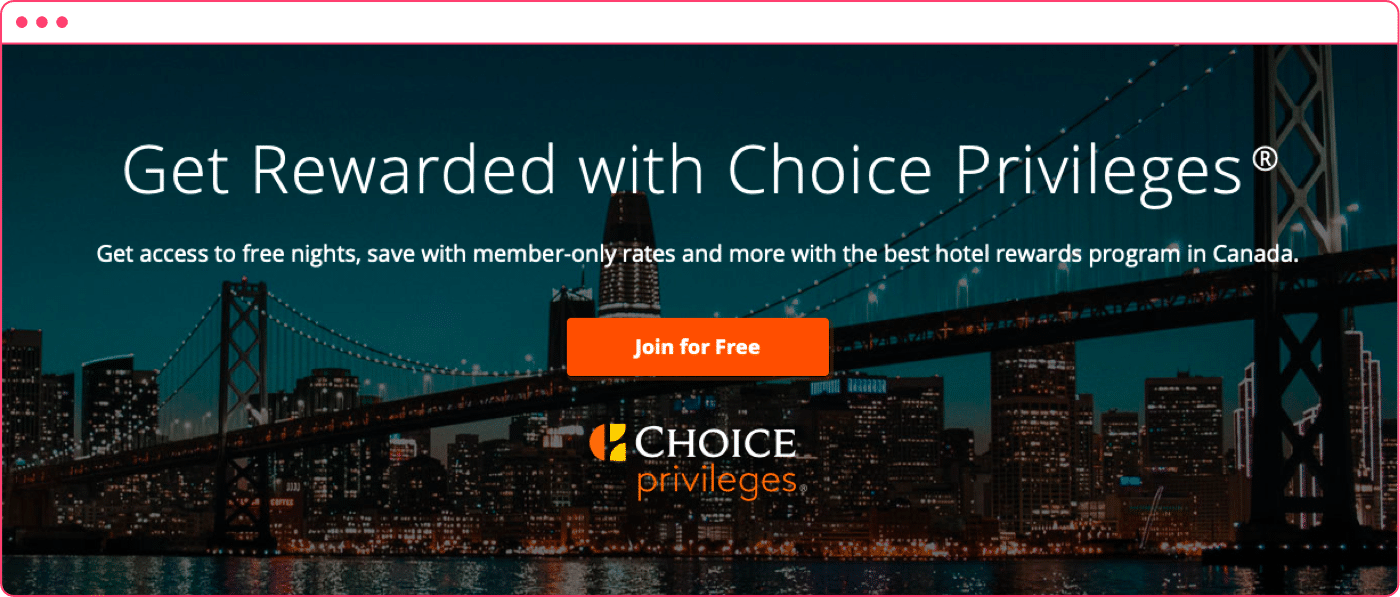
Via Choice Hotels
And for you, the benefit is clear: your customers are more likely to continue buying from you when you have a loyalty program in place. In fact, 79% of customers say a loyalty program makes them more likely to continue buying from a business.
Having trouble visualizing what a loyalty program actually looks like? I get it. Throughout this post, I’ll share lots of examples of awesome programs other businesses have put in place. Hopefully, these examples help spark your interest and get your creative juices flowing.
4 Steps to create a customer loyalty program
Following are 4 simple steps you can use to create your own customer loyalty program. I think you’ll see this doesn’t have to be a complicated, time-consuming process.
1. Think about your customers

Before you start designing your loyalty program, it’s important to think about what your audience actually wants.
Some questions to ask yourself include:
- How do my customers typically make purchases? Online, in-store, via an app?
- What are their values? Do they want free products? Or are they more interested in philanthropy?
- What type of rewards would be easiest for them to redeem?
- Do my customers even WANT a loyalty program?
To help you find some answers, you can do some digging into your analytics (this will give you a better look at their behaviors with your brand) and survey your customers to see what they’re most likely to want.
This may seem like a time-consuming and unnecessary step, but it will save you a lot of grief later by giving you more solid information on which type of program will likely work best for your customers. It will also really help you get it right the first time.
2. Choose the type of program that makes sense for your business.
Customer loyalty programs come in all shapes and sizes, but here are some of the most common types along with examples.
Points programs: Earn points (or stars) you can save up to get free products or earn discounts.

Via Starbucks
Tiered programs: Reach a different tier (and increased benefits) as you spend more money.

Via RW&Co
Punch-card or stamp programs: Earn a free product when you buy a certain number of products.
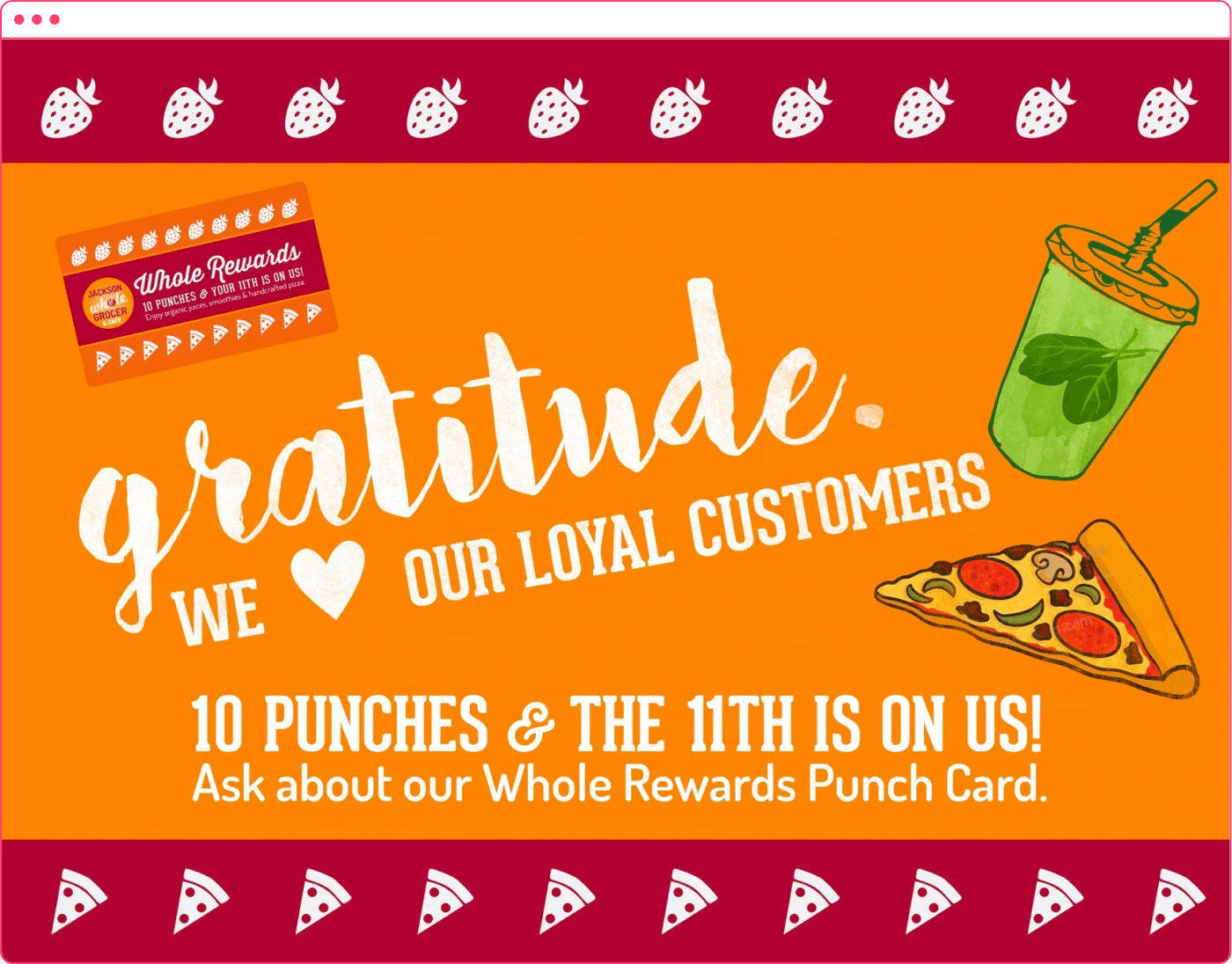
Premium programs: Pay a fee to receive a specific benefit (discounts, free shipping, etc.).
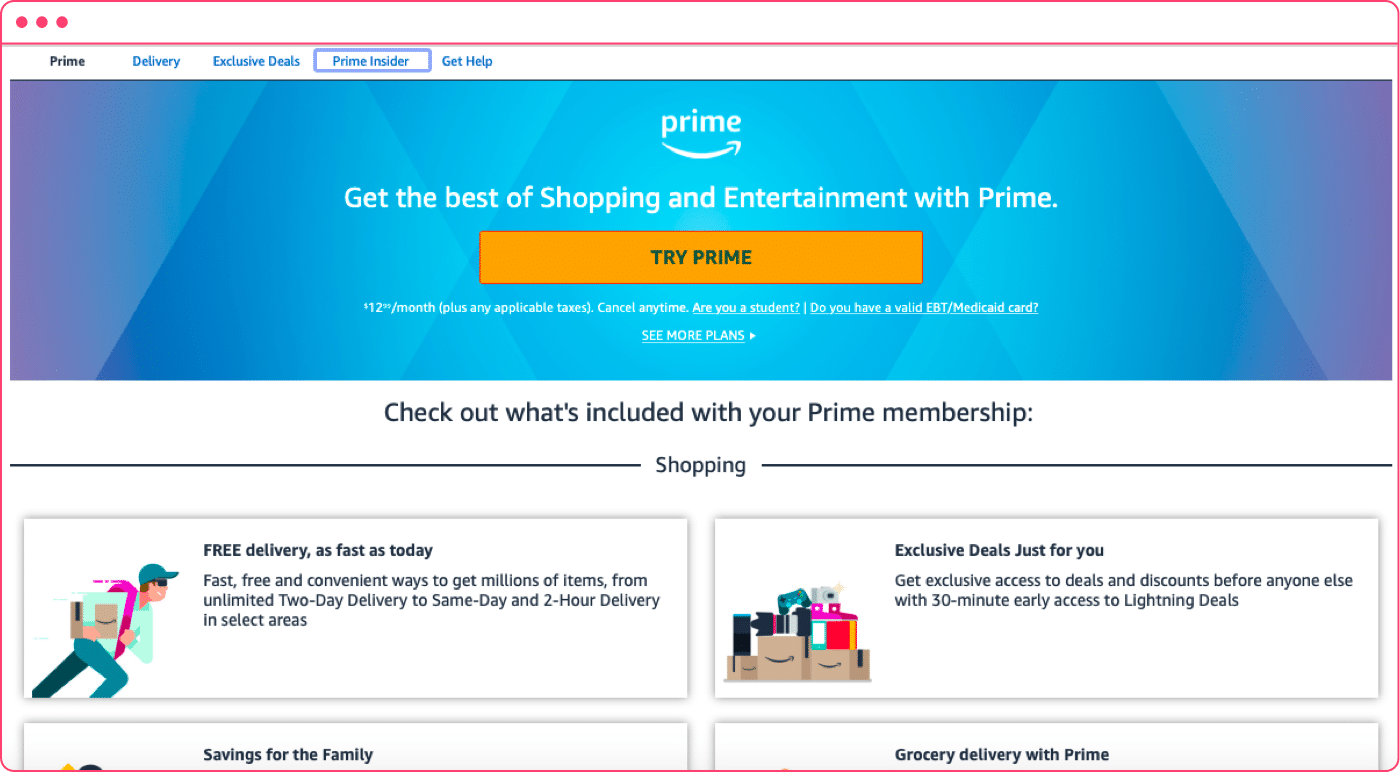
Via Amazon Prime
Cash-back programs: This is just like it sounds. Spend a certain amount of money, and get cashback.
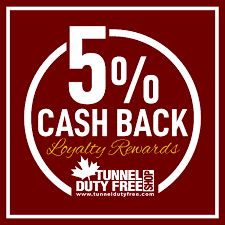
Via Tunnel Duty Free
Donation-based programs: The company makes a cash or product donation for every sale made.

Referral program: Get a discount or reward when you refer friends or family members to the company using a special referral link or code.
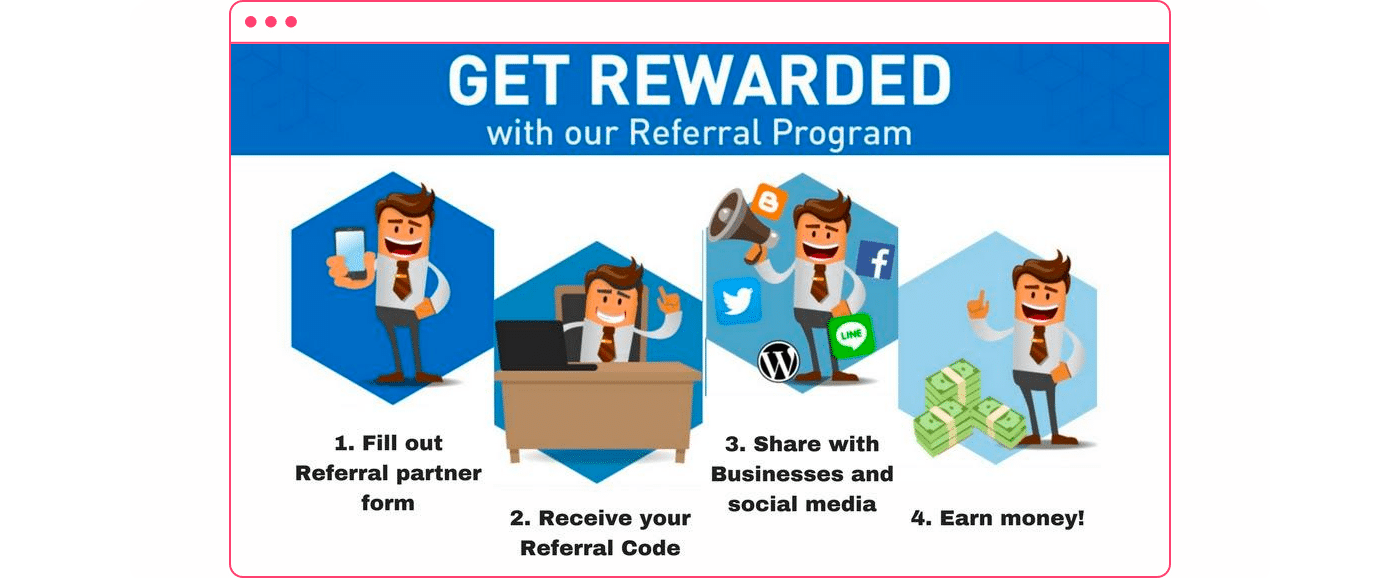
Via Rallypoint
There really is no right or wrong choice here. It’s more about choosing a program that makes the most sense for your business and customers.
3. Decide how you’ll deliver your program
This is where many business owners get stuck.
How will your customers actually collect and redeem their rewards?
Will you use simple punch cards? Or set up an elaborate website where customers can collect and redeem points for rewards?
For instance, if you want to create a punch-card system like this…
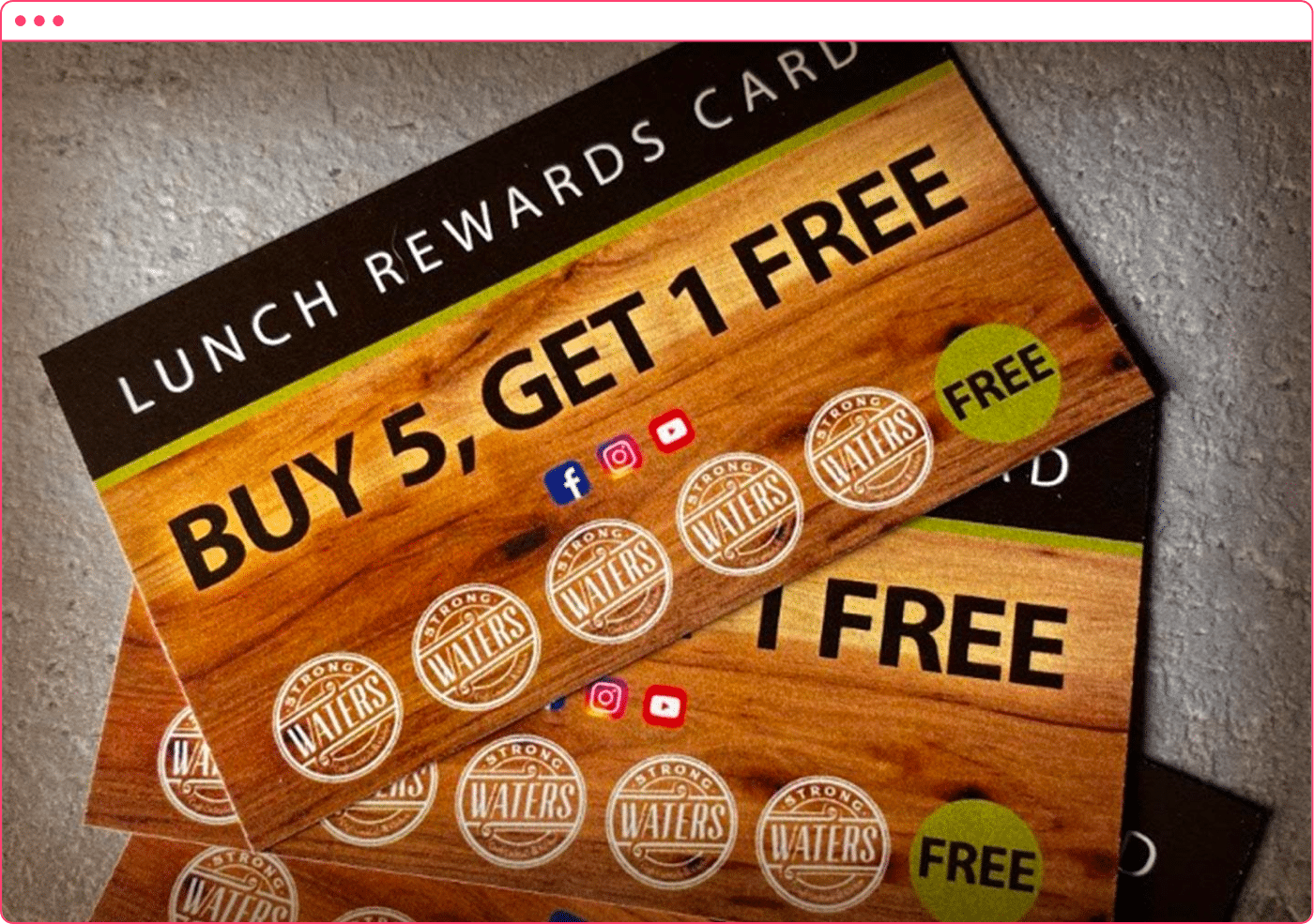
You can easily create and order punch cards from a place like Vistaprint or Etsy for as little as $15.
But if you have a full-on rewards website like American Express rewards in mind…
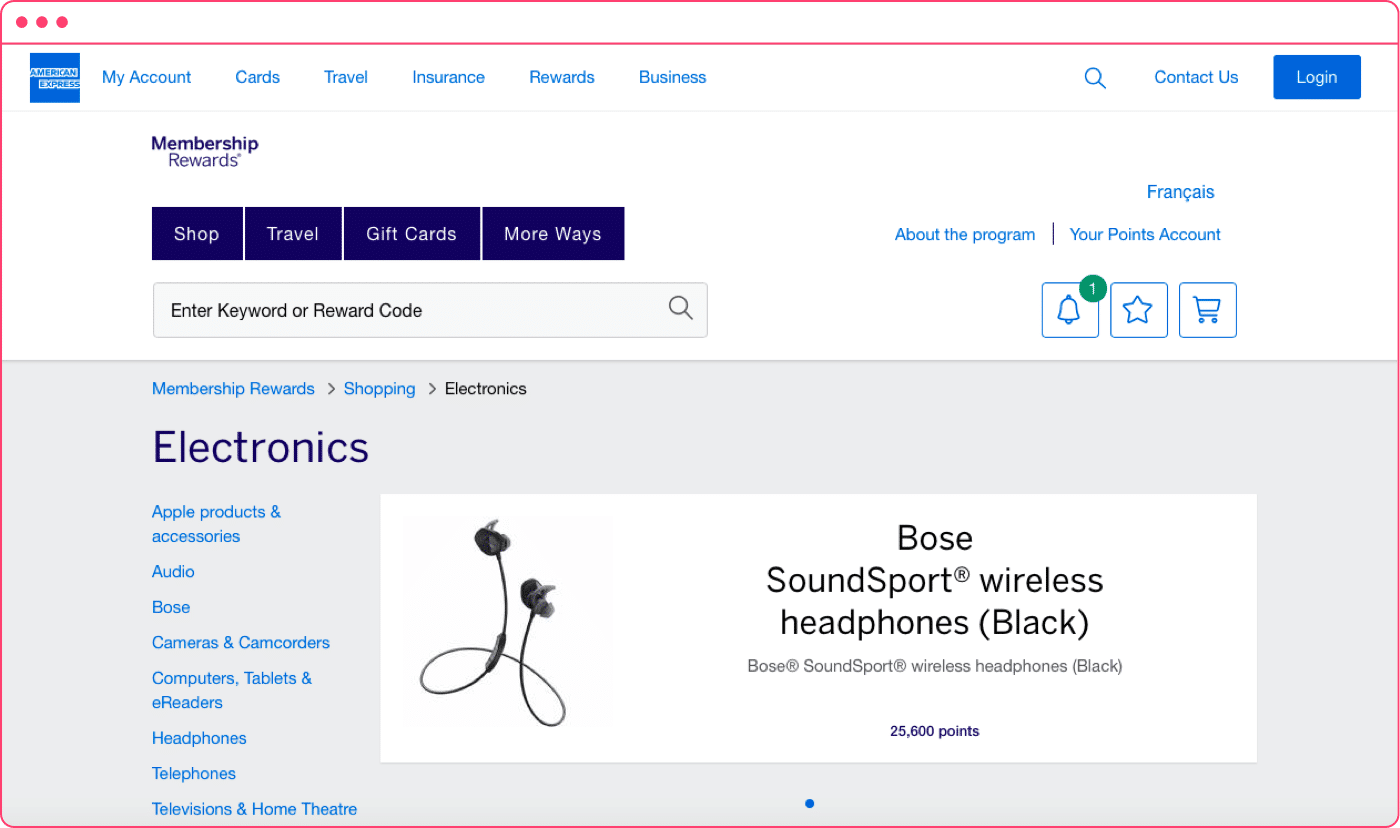
This is obviously going to be a MUCH bigger investment, involving hiring a developer to create the site for you.
Since most business owners are looking for something somewhere in the middle, a good option is using a tool like Smile.io.
A basic Smile.io account will let you start a points or referral program for free, and when you want to upgrade your program (for instance, by branding your program for your business or sending out customized emails to your members), paid plans start at $49/month.
Smile.io also integrates with many of the big shopping platforms like Shopify, WooCommerce, and Wix, making it easy to get your loyalty program up and running in no time.
4. Promote your program
Now comes the fun part.
Once your program is up and running, it’s time to let your customers know about it.
Make sure to mention it on social media, your website, and to your email subscribers.
Even better, use some good old video marketing, and create some promotional videos using Promo.com.
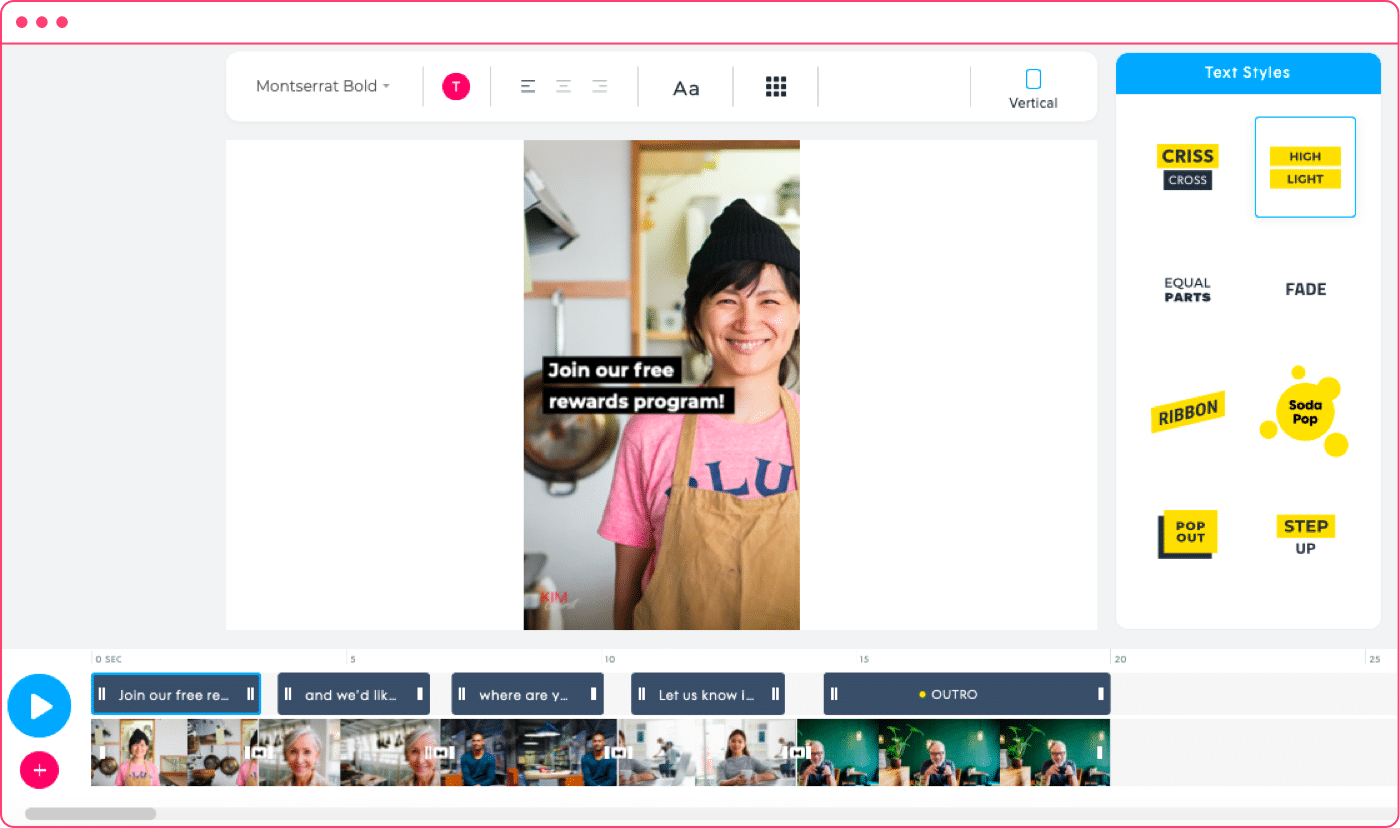
I recommend first creating a short video to start spreading awareness of your loyalty program.
According to a report done by Coresight Research, 72% of consumers prefer learning about a product or service through video.
So, give people what they want, and create a video that simply lets them know about your new program. Keep it short, compelling, and non-salesy. Your goal here isn’t necessarily to get signups, but rather to raise awareness about your program.
As this could be the very first-time people have heard of you or your program, think about what you can do to capture their attention. Some ways to do this include:
- Use high-quality, eye-catching images and video clips
- Incorporate humor and/or stories into your video
- Focus on a single goal for your video (in this case, raising awareness of your program)
- Incorporate your branding elements into your video
Promo.com offers thousands of different templates you can use to create your awareness video. Simply navigate to the Promo Templates section, and choose a template that grabs your attention.
Then customize the text and add your own branding elements, and you’re good to go. SO easy!
Next, I’d recommend creating a video meant to actually get people to sign up for your program. According to research done by Eyeview Digital, using a video on a landing page can increase conversions by a whopping 86%.
For this video, your #1 goal is getting people to sign up for your program by entering their email address. Along with the tips given above for awareness videos, be sure to use a strong call to action (CTA) (e.g., “Join program now”, “Sign up here”, etc.) to boost your conversion rates.
Some other strategies for promoting your loyalty program include:
- Make sure your employees talk about the benefits of your program each time they process a sale
- Include a notification or checkbox on your sales order page or form to let people know how to join (and let them know exactly how much they can save or earn by joining)
- Include a postcard or pamphlet in product packages that talk about your program
- Write a blog post about the benefits of joining your program (real-life case studies are always a great idea!)
Final Thoughts
I hope this post has inspired you to start your own customer loyalty program.
Remember, it’s perfectly okay to start small with a simple punch-card or points system. Then as your business grows, you can always upgrade your program as you’re able.
There is no one-size-fits-all program out there. But you can test and experiment to find the right type of program that makes the most sense for you, your customers, and your business.


